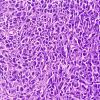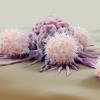New diagnoses of common chronic conditions have dramatically declined during the COVID-19 pandemic, according to a new study.

Researchers in Spain analysed annual incidence rates of the main cardiovascular risk factors, chronic diseases, and some cancers in 2020, compared with data from 2017–2019.
They found a reduction in newly reported diagnoses ranging from a 36% decline for high cholesterol diagnoses, to a 50% decline in the diagnosis of pulmonary diseases, such as chronic bronchitis.
Additionally, the rate of diagnosis of anxiety disorders increased by 16%, while the diagnoses of alcohol use disorder decreased by 46%.
The authors note that the decline is not reflective of improved health outcomes, but suggests that people are not receiving appropriate and timely health screenings that would diagnose these conditions early, when there is a greater chance of effective treatment and good health outcomes.
They write that returning to the level of detection and control of chronic diseases before the pandemic will require a substantial increase in primary care physicians and nurses; a return to face-to-face visits; a reorganisation of telehealth; and the promotion of proactive care in patients who have the greatest comorbidities.




